Feature: Cabaret And Concerts In The Time Of Coronavirus
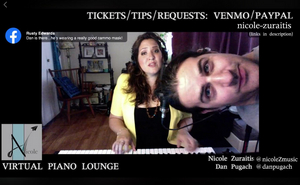
There is a famous movie with a famous scene in which a famous actor makes a speech to the owner of a dinosaur theme park. In his monologue the character, a scientist, argues the power of evolution, declaring that "Nature will find a way," Many sequels later, the same actor and the same character is still declaring that nature will find a way.
Now is the time to find a new way.
When the city of Manhattan closed the doors of the entertainment establishments, the owners and employees of the venues, from Broadway to the tiniest piano bar on the Lower East Side, wondered what they would do, how they would survive, would they survive. Ten weeks later, some are still here, perhaps tentatively, but they are hanging on. Big Broadway productions have shuttered, while others vow that they will return. Nightclubs sustain through funding, both crowd and emergency. Actors, musicians, comics, singers, waiters, bartenders, technicians, managers, and owners hold the faith, hold their breath, and continue to hold on.
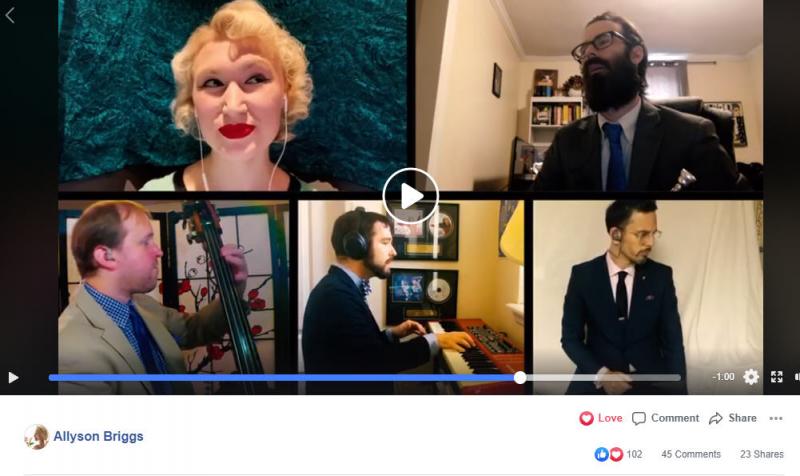 Something interesting happened, though, during the two months of quarantine. Artists from all around the globe took their craft to a new level - sometimes the results were a bit crudely created, with rudimentary tools and limited production values, but nobody was criticizing them because their efforts were offered up as a means of inspiration, of distraction, and of human contact. Using a clip light and an iPhone, people were singing a capella from their bedrooms and sharing daily dances in the hallway of their railroad apartment. Famed artists posted homemade videos of themselves reading Shakespeare, cooking with their children, and creating news networks that only broadcast happy stories. The creativity factor of the entire world went up six points and an online community was built. It was fun and it showed solidarity, and as the weeks have passed, the practice of online creation has opened up an entire new world of entertainment, indeed, entertainment for a new world.
Something interesting happened, though, during the two months of quarantine. Artists from all around the globe took their craft to a new level - sometimes the results were a bit crudely created, with rudimentary tools and limited production values, but nobody was criticizing them because their efforts were offered up as a means of inspiration, of distraction, and of human contact. Using a clip light and an iPhone, people were singing a capella from their bedrooms and sharing daily dances in the hallway of their railroad apartment. Famed artists posted homemade videos of themselves reading Shakespeare, cooking with their children, and creating news networks that only broadcast happy stories. The creativity factor of the entire world went up six points and an online community was built. It was fun and it showed solidarity, and as the weeks have passed, the practice of online creation has opened up an entire new world of entertainment, indeed, entertainment for a new world.
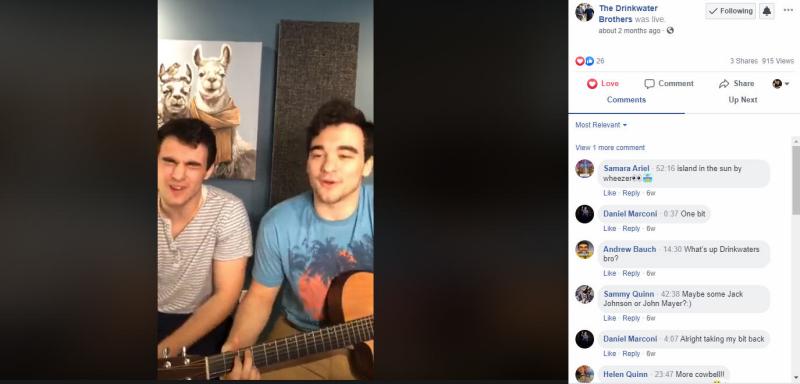 Broadway and the West End have announced they will not return for months. Theater craftspeople are out of work and finding, creating new ways to make an income. Celebrities of varying degrees are teaching online courses and doing CAMEO videos to make money. Everyone is searching for something to do, all the while maintaining their social distance because, in times like these, the world will look to the celebrities for guidance - the importance of setting a good example has rarely been more important. The likes of Sharon Stone, Katharine McPhee, Orfeh and Andy Karl take to their social media to remind people to stay at home - and as a bonus, they make us laugh or sing us a song, and their fans smile and go back to their computers to find something to watch on the new TV, and that is where the new breed of entertainment can be found.
Broadway and the West End have announced they will not return for months. Theater craftspeople are out of work and finding, creating new ways to make an income. Celebrities of varying degrees are teaching online courses and doing CAMEO videos to make money. Everyone is searching for something to do, all the while maintaining their social distance because, in times like these, the world will look to the celebrities for guidance - the importance of setting a good example has rarely been more important. The likes of Sharon Stone, Katharine McPhee, Orfeh and Andy Karl take to their social media to remind people to stay at home - and as a bonus, they make us laugh or sing us a song, and their fans smile and go back to their computers to find something to watch on the new TV, and that is where the new breed of entertainment can be found.
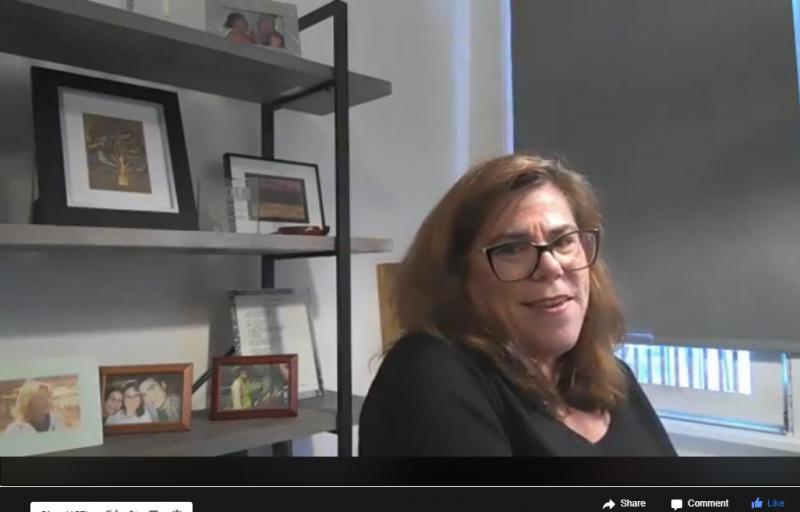 Nightclub performers are used to producing their own show because they ARE their producer. While theater, film, and television performers have a producer who creates the show in which they are working, cabaret performers are their own bosses. They conceive and write their acts, then hire a director and musicians, and book themselves into a club - then they pay their team out of what they make performing their shows. The cabaret community, to quote David Sabella, is more than a community, it is the cabaret industry, and the members of the industry are evolving in their art. Mere days after the New York lockdown started, Sean Harkness was giving his first living room concert and offering that viewers were welcome to send virtual tips through Paypal or Venmo. The following week Matt Baker started what would become a series of weekly concerts, speaking openly during his live streaming shows about the plight of the gig worker during a quarantine. An online community called Quarantined Cabaret caught the attention of the world, and a young mother in England named Debbie Wileman became a cyber-lebrity by singing a Song A Day in her garden, laundry room, or car. Like children wanting to get into a game, like artists wishing to try something new, like craftspeople looking for a new trade, members of the show business industry all jumped into the water and learned they could swim. They evolved. Now there is a new place to see one's favorite artists, and a new form of human interaction; so when people tire of recorded entertainment on Netflix and Disney Plus, they can go to their phones, tablets, and computers to see the performers they love, in real-time... and they can interact with them, too. Are the production values as good as they are in a cabaret room? Perhaps not, but audiences get to see how Linda Lavin lives when she broadcasts from her home every Wednesday. Audiences can message a hello to Billy Stritch and hear him call out their name on the new TV; they get to send The Drinkwater Brothers song requests in real-time, and all are given the privilege of seeing women like Gretchen Reinhagen and Allyson Briggs immersed in their craft once a week, something you don't even get when the clubs are open. This is television programming for a new day, and it is an opportunity for all to witness change, right before our very eyes. From their living rooms, using a program called ZOOM that has revolutionized how the world operates, Jim Caruso and Julie Halston have each created TV shows for the net. The Boy Band Project is able to have interactive programming with their fans every Sunday. Sally Mayes, from her home, is singing music with Scott Evan Davis... and Alex Rybeck... and Jason Robert Brown, each of them performing from their own homes. Nicole Zuraitis and her husband, Dan Pugach, opened a Virtual Piano Bar, with her on piano in one room of their house and him on drums in another. Billy Gilman performs for his fans to recorded tracks in his home, and Nicolas King joins Mike Renzi at home for their sets, as they happen to live in the same town, and fans of these men always flood their Facebook pages to watch them. Klea Blackhurst created a series about the works of Ethel Merman, as seen through Merman's show Playbills. Anthony Nunziata and Eugene Gwozdz make music in real-time, from different locations, and when technology fails them, they keep going, in all their humanity, to spread joy and love to the people who tuned in. John McDaniel's Sunday show is popular to the tune of two thousand viewers. So much content has been landing online that Sue Matsuki at CABARET HOTSPOT has had to work overtime just updating the schedule of weekly events. This experimental way of sharing their art doesn't phase the artist because cabaret and concert performers of the world are used to rolling with the flow -- live performing is their natural habitat, and during a live show there is no telling what might happen.
Nightclub performers are used to producing their own show because they ARE their producer. While theater, film, and television performers have a producer who creates the show in which they are working, cabaret performers are their own bosses. They conceive and write their acts, then hire a director and musicians, and book themselves into a club - then they pay their team out of what they make performing their shows. The cabaret community, to quote David Sabella, is more than a community, it is the cabaret industry, and the members of the industry are evolving in their art. Mere days after the New York lockdown started, Sean Harkness was giving his first living room concert and offering that viewers were welcome to send virtual tips through Paypal or Venmo. The following week Matt Baker started what would become a series of weekly concerts, speaking openly during his live streaming shows about the plight of the gig worker during a quarantine. An online community called Quarantined Cabaret caught the attention of the world, and a young mother in England named Debbie Wileman became a cyber-lebrity by singing a Song A Day in her garden, laundry room, or car. Like children wanting to get into a game, like artists wishing to try something new, like craftspeople looking for a new trade, members of the show business industry all jumped into the water and learned they could swim. They evolved. Now there is a new place to see one's favorite artists, and a new form of human interaction; so when people tire of recorded entertainment on Netflix and Disney Plus, they can go to their phones, tablets, and computers to see the performers they love, in real-time... and they can interact with them, too. Are the production values as good as they are in a cabaret room? Perhaps not, but audiences get to see how Linda Lavin lives when she broadcasts from her home every Wednesday. Audiences can message a hello to Billy Stritch and hear him call out their name on the new TV; they get to send The Drinkwater Brothers song requests in real-time, and all are given the privilege of seeing women like Gretchen Reinhagen and Allyson Briggs immersed in their craft once a week, something you don't even get when the clubs are open. This is television programming for a new day, and it is an opportunity for all to witness change, right before our very eyes. From their living rooms, using a program called ZOOM that has revolutionized how the world operates, Jim Caruso and Julie Halston have each created TV shows for the net. The Boy Band Project is able to have interactive programming with their fans every Sunday. Sally Mayes, from her home, is singing music with Scott Evan Davis... and Alex Rybeck... and Jason Robert Brown, each of them performing from their own homes. Nicole Zuraitis and her husband, Dan Pugach, opened a Virtual Piano Bar, with her on piano in one room of their house and him on drums in another. Billy Gilman performs for his fans to recorded tracks in his home, and Nicolas King joins Mike Renzi at home for their sets, as they happen to live in the same town, and fans of these men always flood their Facebook pages to watch them. Klea Blackhurst created a series about the works of Ethel Merman, as seen through Merman's show Playbills. Anthony Nunziata and Eugene Gwozdz make music in real-time, from different locations, and when technology fails them, they keep going, in all their humanity, to spread joy and love to the people who tuned in. John McDaniel's Sunday show is popular to the tune of two thousand viewers. So much content has been landing online that Sue Matsuki at CABARET HOTSPOT has had to work overtime just updating the schedule of weekly events. This experimental way of sharing their art doesn't phase the artist because cabaret and concert performers of the world are used to rolling with the flow -- live performing is their natural habitat, and during a live show there is no telling what might happen.
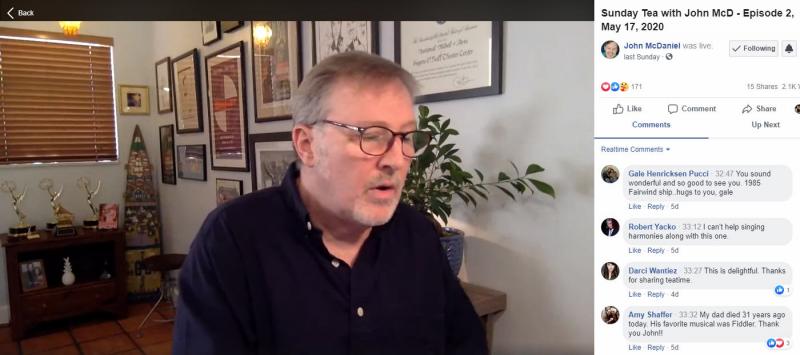
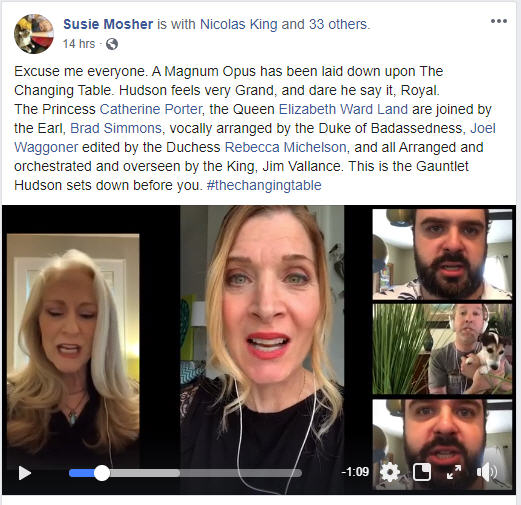 This is something that everyone can do, too, because we all have a smartphone, so we can all make art. Filmmakers use their iPhones to make movies and photographers have won prizes with their iPhones. Singers record on them, actors do submissions on them, and people live stream from them. Some people use ring lights, others use daylight. Art, though, requires limitation. When an artist must work within boundaries, their imaginations are pushed to new limits. The ladies of The Broadway Princess Party created a quarantine music video to rival something that was pro-shot, and a team of artists that includes Elizabeth Ward Land and Catherine Porter created an epic rendition of the viral sensation "The Changing Table." In a world where a solitary man in an apartment all by himself can recreate the final dance sequence from "Dirty Dancing" anything is possible (his name is Quinn B. Wharton, by the way). Most actors have become accustomed to self-taping for auditions, so they already have the tools of creation - Melissa Errico even wrote a piece about the phenomenon of self-submissions, including a photo that shows her with a backdrop, a ring light, and phone tripod. Donna Murphy's now-famous "Send In The Clowns" was created with no more than an iPhone and a tabletop tripod. The fact of the matter is that the possibilities are as limitless as the artist's imagination. This is still live cabaret... only now the potential audience is global.
This is something that everyone can do, too, because we all have a smartphone, so we can all make art. Filmmakers use their iPhones to make movies and photographers have won prizes with their iPhones. Singers record on them, actors do submissions on them, and people live stream from them. Some people use ring lights, others use daylight. Art, though, requires limitation. When an artist must work within boundaries, their imaginations are pushed to new limits. The ladies of The Broadway Princess Party created a quarantine music video to rival something that was pro-shot, and a team of artists that includes Elizabeth Ward Land and Catherine Porter created an epic rendition of the viral sensation "The Changing Table." In a world where a solitary man in an apartment all by himself can recreate the final dance sequence from "Dirty Dancing" anything is possible (his name is Quinn B. Wharton, by the way). Most actors have become accustomed to self-taping for auditions, so they already have the tools of creation - Melissa Errico even wrote a piece about the phenomenon of self-submissions, including a photo that shows her with a backdrop, a ring light, and phone tripod. Donna Murphy's now-famous "Send In The Clowns" was created with no more than an iPhone and a tabletop tripod. The fact of the matter is that the possibilities are as limitless as the artist's imagination. This is still live cabaret... only now the potential audience is global.
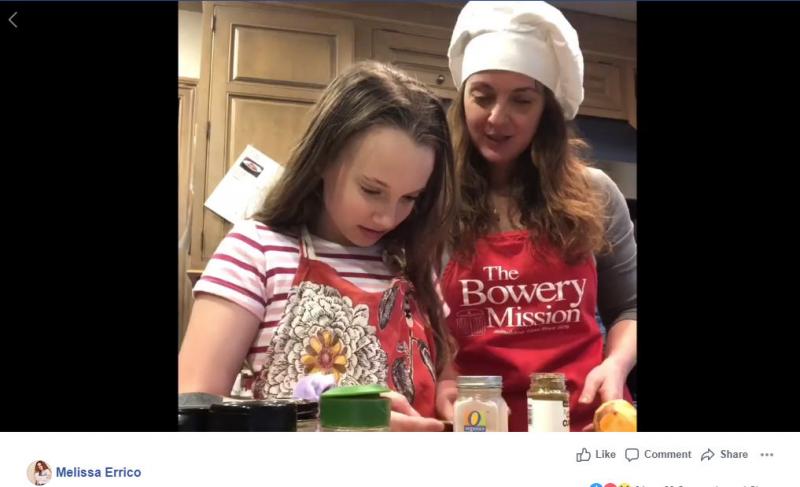
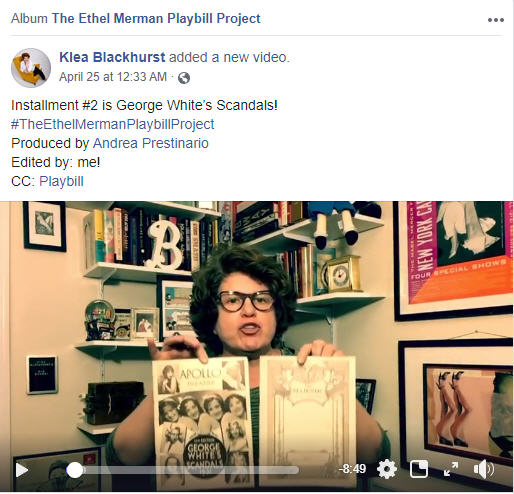 With live streaming shows on Youtube and Facebook and any other platform, performers can reach any person, any fan, in any time zone, in any country. That couldn't be done before the evolution of the art took the industry in this direction. It wasn't a thought. Performers wanted their shows to be live, in-person, well-attended - nobody would have considered a live streaming cabaret show. Now, that is not only a consideration, it's an expectation... or, at least, a hope. This is the direction in which cabaret is going, and people not willing to change run the risk of becoming... well, a dinosaur. There is no need for that, though - no need to resist change, no benefit in becoming obsolete. People would be well advised to embrace the shift in the paradigm. Vaudeville became burlesque, silents segued to talkies, movies gave birth to television, the National Theater films their plays and broadcasts them on movie screens, and Broadway HD shows professionally shot films of Broadway plays. The world is ever-changing, sometimes for the better, others, not so much. As Mr. Dickens, though, once said: "It was the best of times, it was the worst of times."
With live streaming shows on Youtube and Facebook and any other platform, performers can reach any person, any fan, in any time zone, in any country. That couldn't be done before the evolution of the art took the industry in this direction. It wasn't a thought. Performers wanted their shows to be live, in-person, well-attended - nobody would have considered a live streaming cabaret show. Now, that is not only a consideration, it's an expectation... or, at least, a hope. This is the direction in which cabaret is going, and people not willing to change run the risk of becoming... well, a dinosaur. There is no need for that, though - no need to resist change, no benefit in becoming obsolete. People would be well advised to embrace the shift in the paradigm. Vaudeville became burlesque, silents segued to talkies, movies gave birth to television, the National Theater films their plays and broadcasts them on movie screens, and Broadway HD shows professionally shot films of Broadway plays. The world is ever-changing, sometimes for the better, others, not so much. As Mr. Dickens, though, once said: "It was the best of times, it was the worst of times."
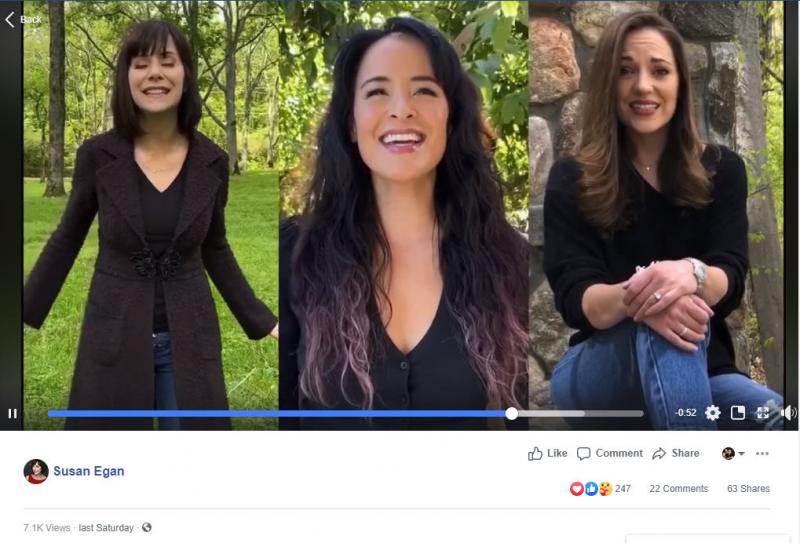
This is a dark time for the world, with many people sick, dying, wondering, worrying, and there are few lives that will not be touched by the pandemic. If we are to survive, we must grow with the time, we must evolve through the crisis. There will, surely, be a day when the people of the world gather together in crowded (or not so crowded) rooms for the communal enjoyment of live performance, once more. In a phone conversation yesterday, David Sabella wondered if cabaret rooms couldn't be opened at half-capacity, for distancing, with live streaming tickets for sale to viewers anywhere in the world, and this writer suggested that the clubs could sell locals a virtual cabaret experience, with food and drinks delivered to peoples' homes. It's an idea that warrants further discussion, but one that could lead to the day when lovers of cabaret are in the same room, together again. For this moment, though, it is time to go back to the drafting table, to reexamine our individual art forms, to dig deeper than we've ever dug before, and find a way to move forward in what could be an exciting time of evolution in entertainment. Only then will we survive.
We, like nature, will find a way.
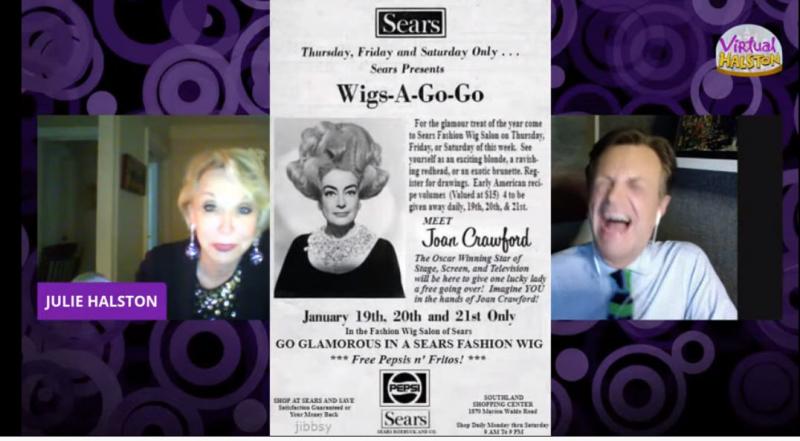
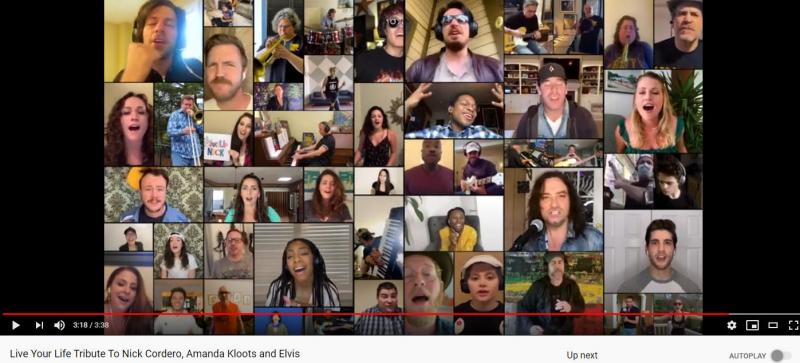
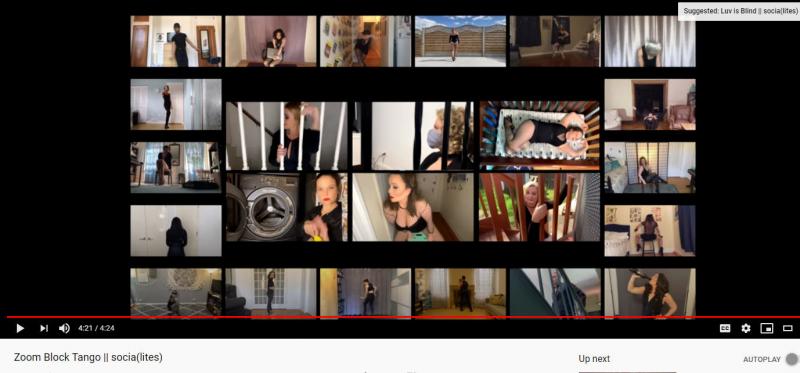
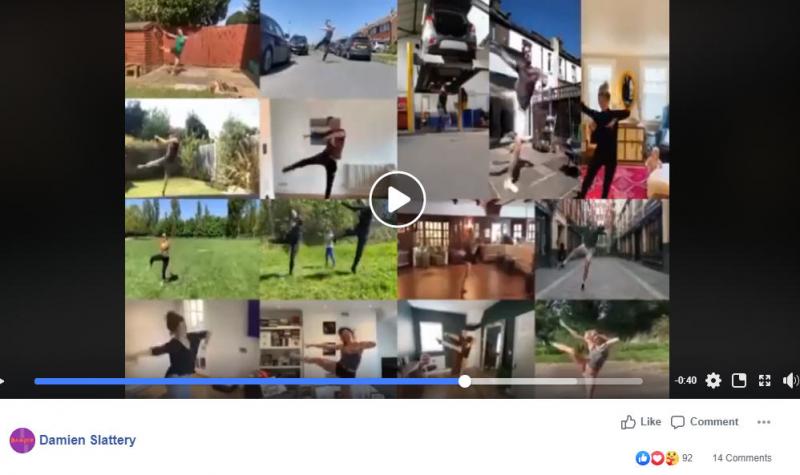
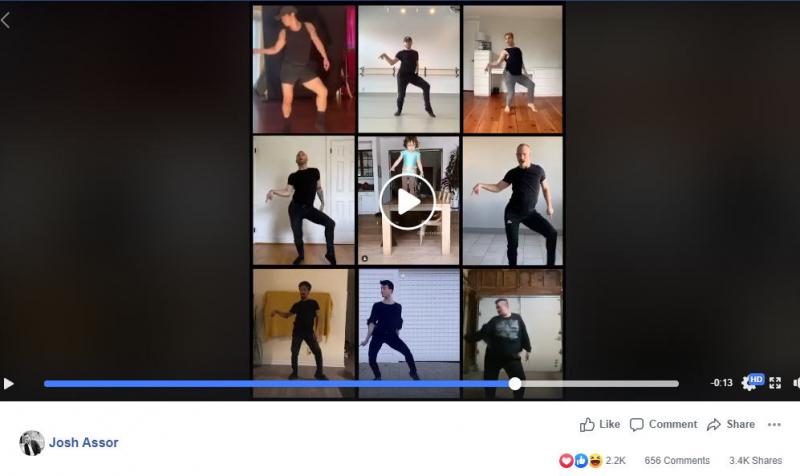
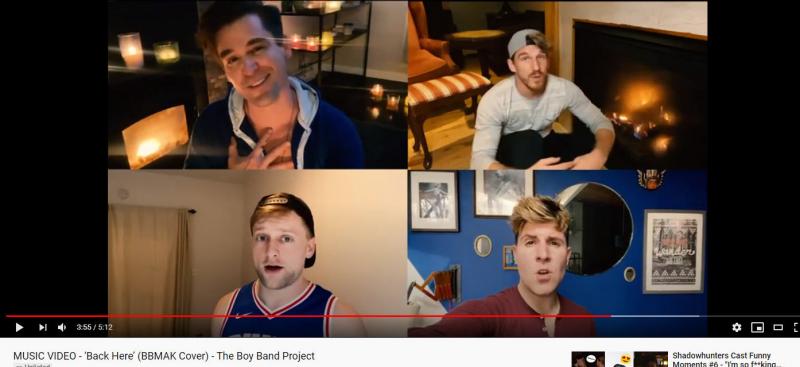
Videos
